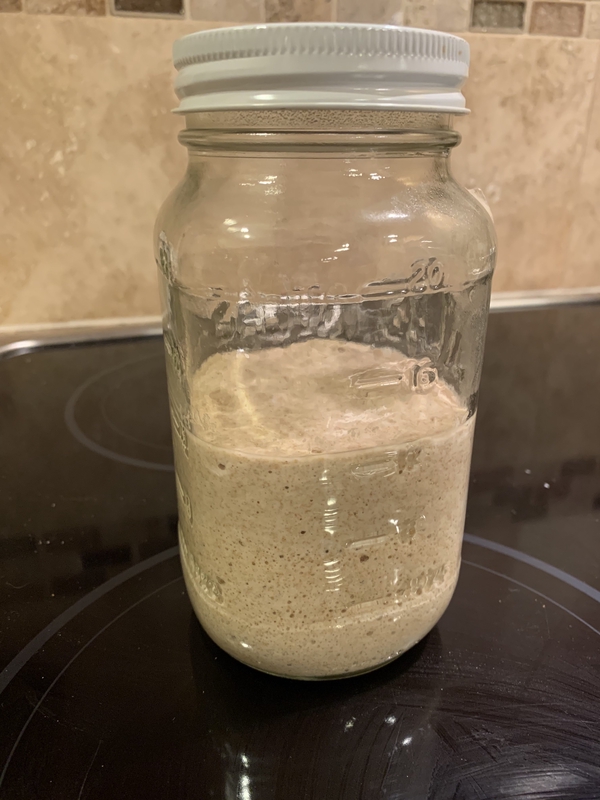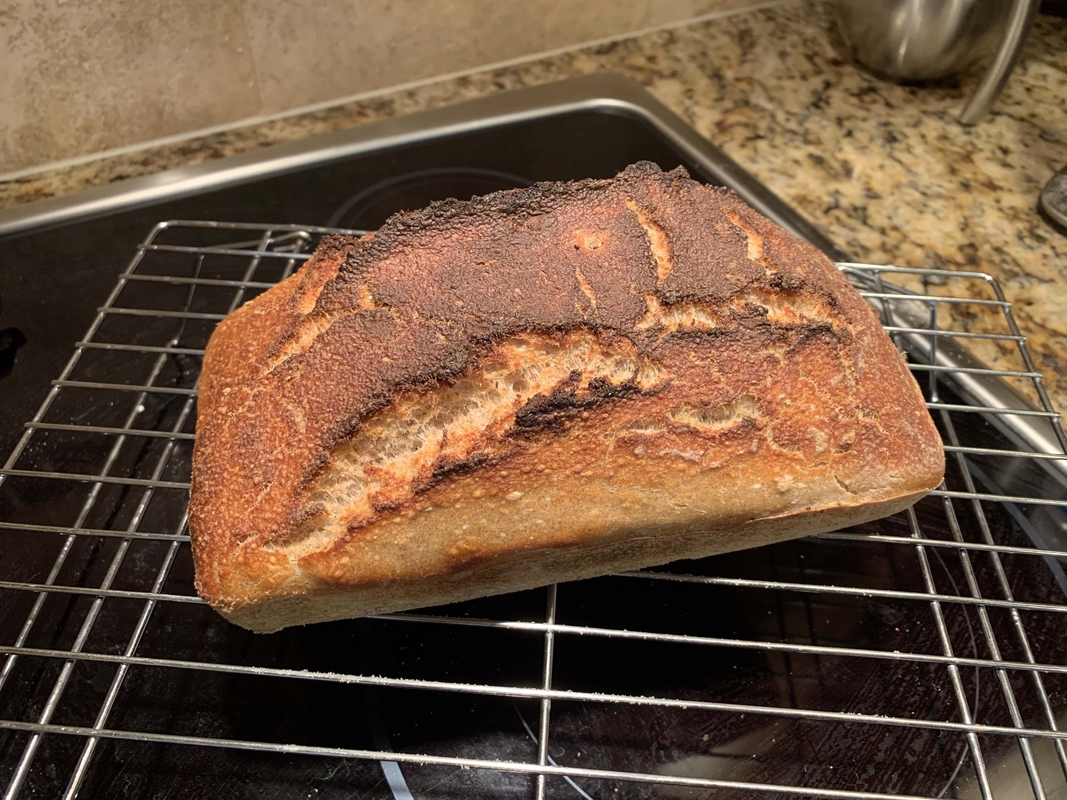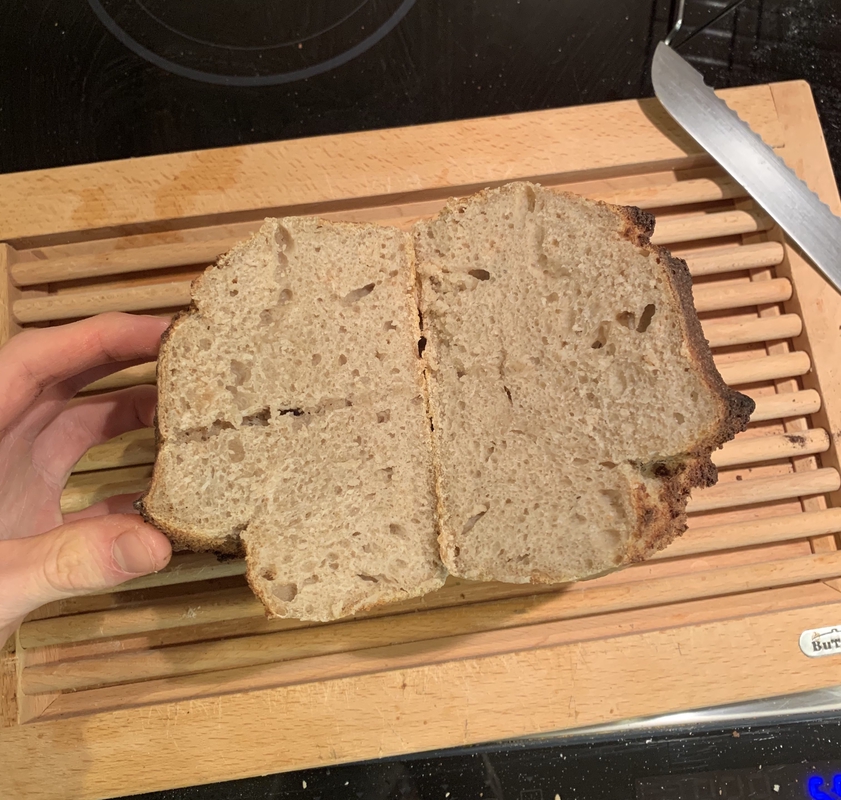Another week gone by in coronavirus lockdown. Any remaining novelty of this situation has worn off, and I’m starting to mentally adjust to the idea that we’ll be in this for “the long haul”. In the news and my Twitter-bubble, the focus seems to be moving away from the immediate impact of the virus and on to proposed timelines and methods for “returning to normal”.
Our initial guidance at work, back when all this was first starting, was that we’d be WFH until April 10th. That date has, understandably, come and passed and now we’re in this mode “until further notice”. Also, it’s Easter Sunday, and no surprise, the US is not “reopened for business”. To be clear, I think we should stay locked down. It’s just… getting old. I’ve caught myself unironically referring to the period before February as “the before times” more than once.
In positive news, Seattle has been having an uncharacteristically nice Spring. It was sunny most days this week, and we had a couple days that pushed highs of 60°F. So, it could be worse. A lot worse.
Media
I took a break from podcasts this week. Too much coronavirus talk. Instead, I read some books that have been waiting on my reading list for too long:
The Picture of Dorian Gray (available on Project Gutenberg as a free ebook). I picked up Dorian Gray a while back because it was on a list of classic novels that I wanted to read. I’m not sure why, but this novel just didn’t click with me. The first couple chapters were excellent, but I felt like the latter half of the book dragged on and didn’t come to a satisfying conclusion. I probably wouldn’t recommend it on its own merits, but the prose is technically very well done and it was interesting to read something by Oscar Wilde, who gets quoted so often.
Animal Farm. I’ve somehow gotten this far in life without ever reading Animal Farm. In contrast to Dorian Gray, I couldn’t put this book down. I ended up reading through the whole thing in less than a day – which, to be fair, wasn’t too difficult since it’s a short book. It holds up remarkably well as a political allegory, and as someone who’d been quite interested in the history of 20th century Communism, it felt like every line contained a bit of a wink and nod. Would highly recommend.
Better Call Saul. In TV, I burned through the entire Season 3 of Better Call Saul this week. For whatever reason, the first 2 seasons didn’t really hook me; Season 1 was slow and Season 2 was better, but I still couldn’t see what it was building towards. In contrast, Season 3 was excellent. Vince Gilligan’s style shines through, the writing is crisp, and there are some extremely well done plot payoffs. Can’t wait to start on Season 4.
Cooking
My third attempt at sourdough starter is still alive and well. It’s not quite strong enough to bake with yet, but it’s getting there. I’ve noticed that it seems to respond better to whole wheat flour than white flour. It’s a bit of a pain to feed it daily and it consumes a silly amount of flour (most of which you discard), so I don’t see myself continuing this once things “return to normal”. Perhaps once my starter is mature enough to live in the fridge and only get weekly feedings, I’ll be less annoyed.

I used a bit of the sourdough discard along with some commercial yeast to make this recipe for “rustic sourdough bread”. It’s basically “easy mode” sourdough, because you piggyback off the leavening of the commercial yeast.
The recipe makes 2 loafs and I only wanted 1 loaf, so I halved the recipe. Unfortunately, I forgot to halve the amount of water, so I accidentally made an extremely hydrated dough. 🙃 I recovered it by adding a bunch more flour and kneading in a stand mixer until it held together.

Inconsistent shape, but there’s some nice sourdough bubbles
Even with these mitigations, it was still quite a loose dough so I baked it in a loaf pan. I’m happy with how it turned out, all things considered. It has a nice “sourdough” taste, and makes good sandwich bread.

A bit of a tighter crumb than I was hoping for
In other cooking news, this week I perfected my technique for making soft-boiled eggs using this Bon Appetit recipe. It’s not a particularly noteworthy accomplishment; the cook time is important, as is a post-cooking ice bath, but it’s basically a fool-proof technique.
Assorted Links
-
Randall Degges wrote an great article about Defensive Finance in a Downturn. Financial advise is, of course, dependent on your financial circumstances, living situation, and tolerance for risk. This article does a pretty good job of describing a conservative approach to finances in bear markets for folks across the spectrum of financial security.
-
“The Hollow Politics of Minimalism” put in words something that has been in the back of my mind for a while. “Minimalism”, especially as popularized by the popular Netflix documentary, is a rather palid ideology when it comes to, you know, anything other than organizing your house.
Minimalism has been reduced to an aspirational style—a measure of taste and an opportunity to announce your sophistication. By buying and having less, you can demonstrate that you and the things you do own are worth more.
Instead of digging into systemic problems like poverty or exploring ideas of wealth redistribution, the [“Minimalists”] film frames having less as an individual, moral choice with no political strings or implications. In his book, Chayka sums up this approach as: “Your bedroom might be cleaner, but the world stays bad.”
-
PolitePol. I’ve been adding a bunch of new blogs to my reading list recently (the ones I’ve enjoyed the most are on my blogroll). Some blogs still don’t offer RSS/Atom feeds, but PolitePol offers a cool workaround. The service is pretty slick: you give it the link to a blog’s archive/feed page and choose the title/summary elements of each feed item, and then it generates an RSS feed. It’s like Distill meets KillTheNewsletter, but for blogs. (Update: Turn’s out PolitePol is also open source!)
-
Apple and Google partnered to announced a contact tracing project. I was initially very skeptical of this, especially since this type of functionality would likely need to be baked into iOS/Android at the OS-level. However, after reviewing the spec, my skepticism decreased. It seems like, if implemented as described and if this is all opt-in, contact tracing won’t be more damaging to privacy than data sources that your phone already generates. Those are some big “ifs”, and I’m still concerned that this is a “one-way door” (see also: the TSA, the Patriot Act, etc.) – once we acclimate to the idea that we can passively track who comes into contact with whom, that’s going to be difficult to roll back. But, color me cautiously optimistic.
Stay safe, stay sane.